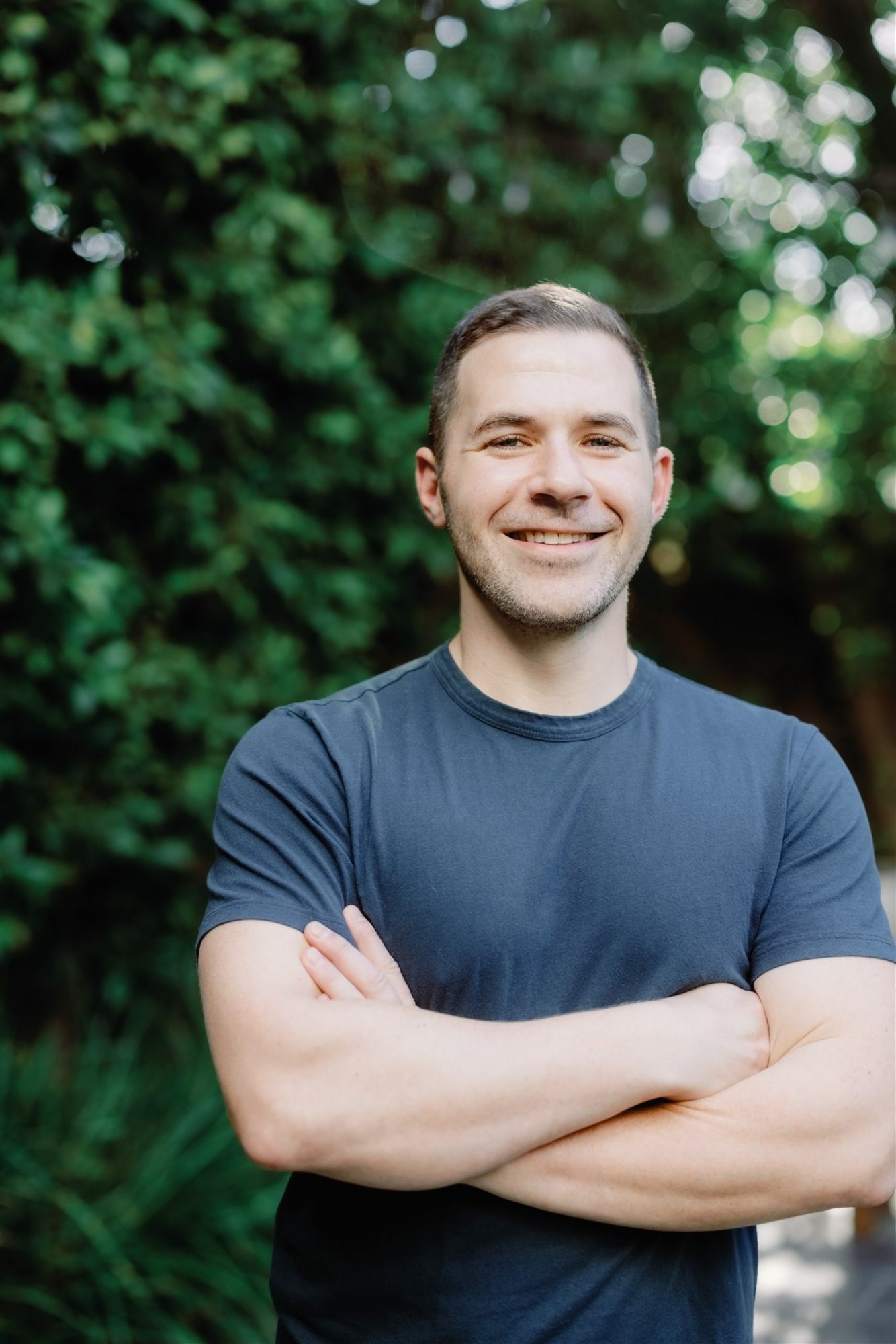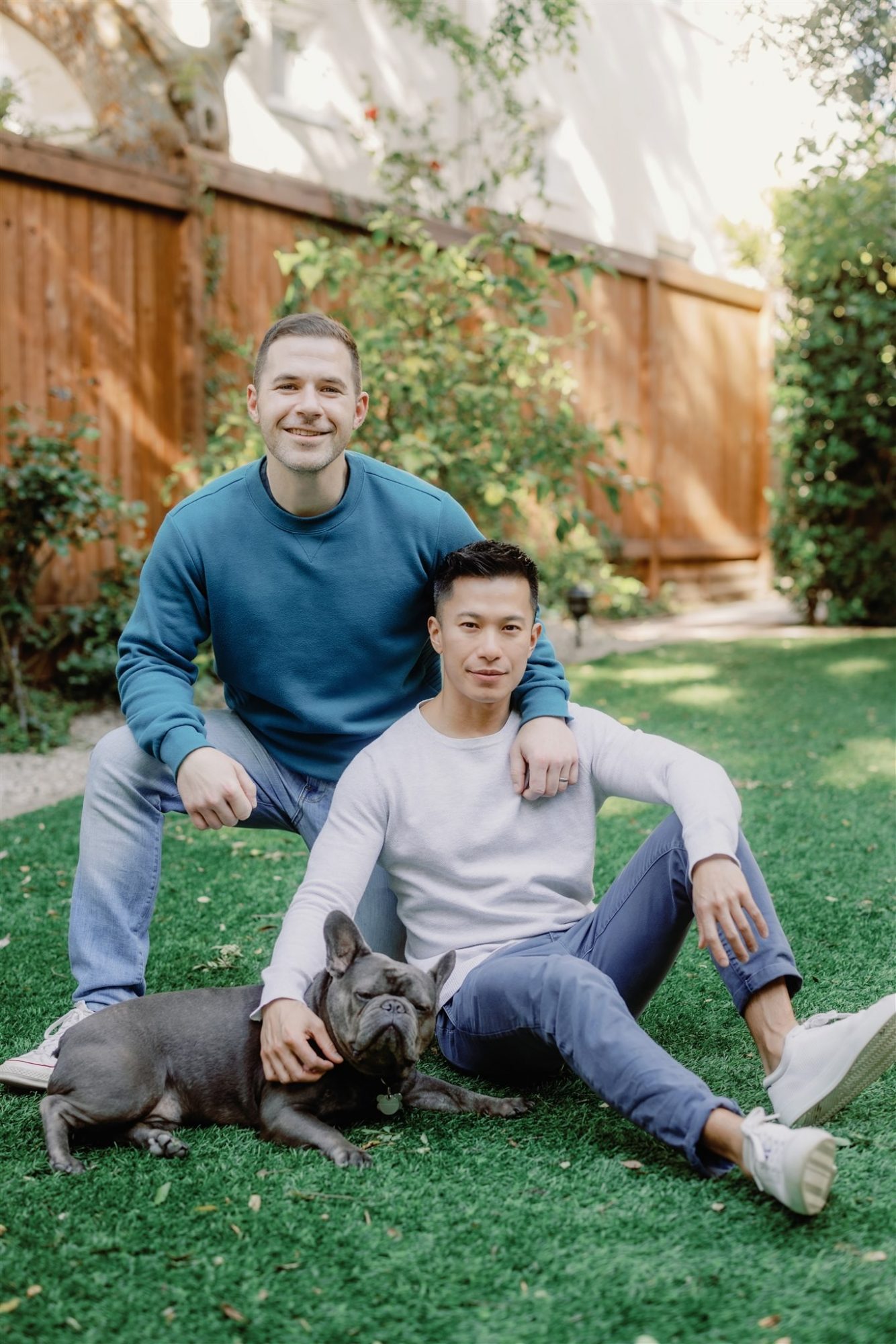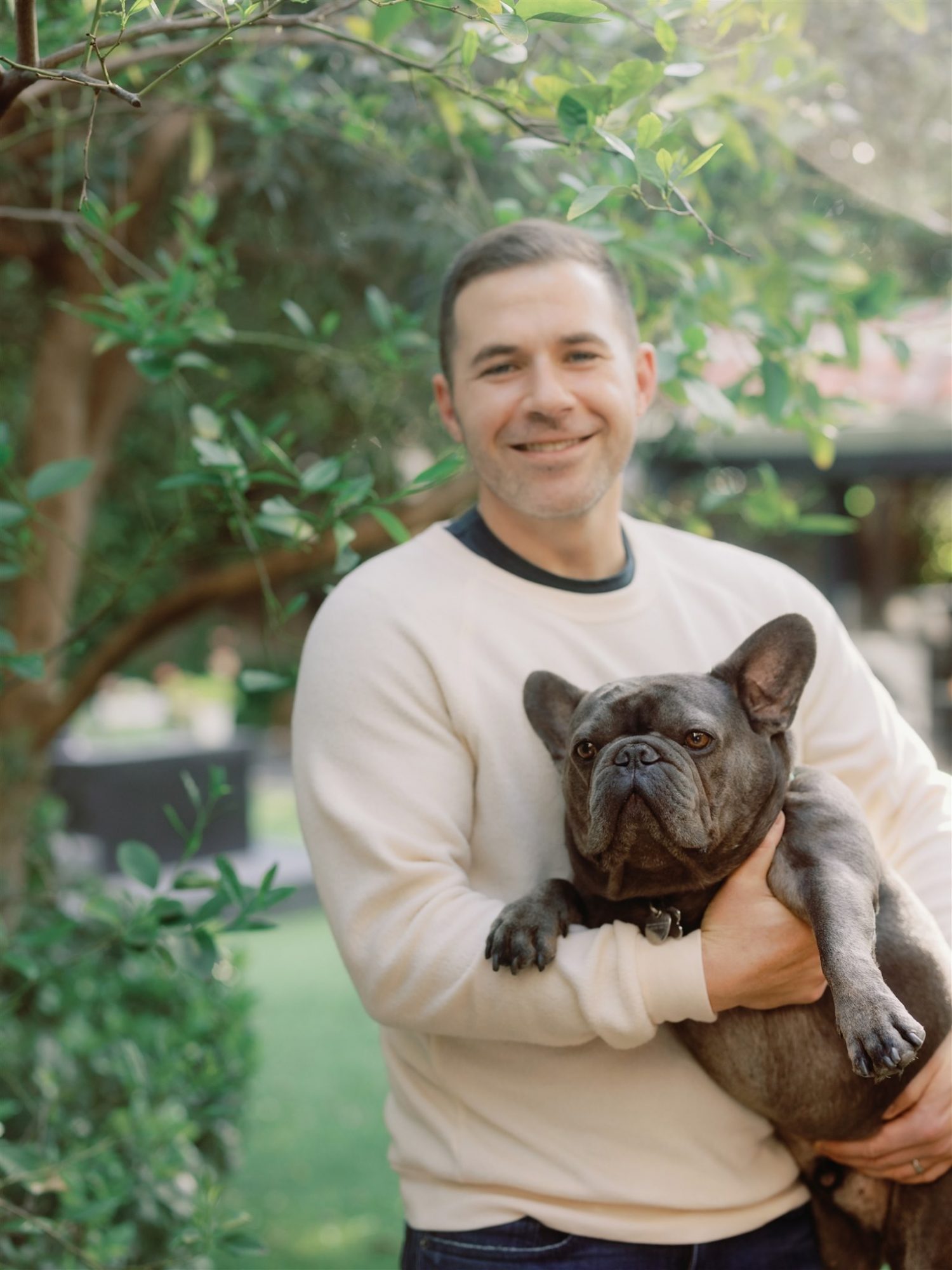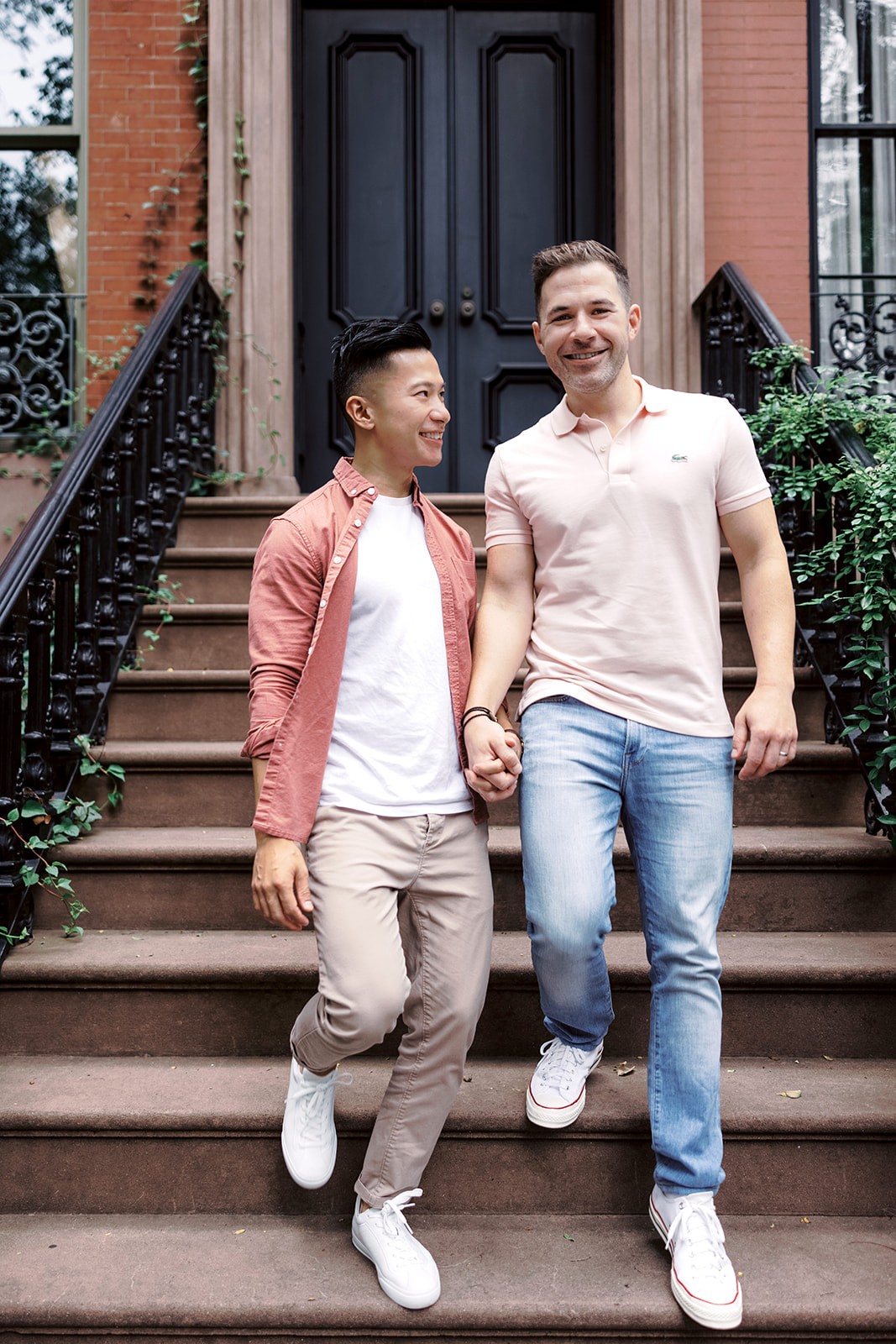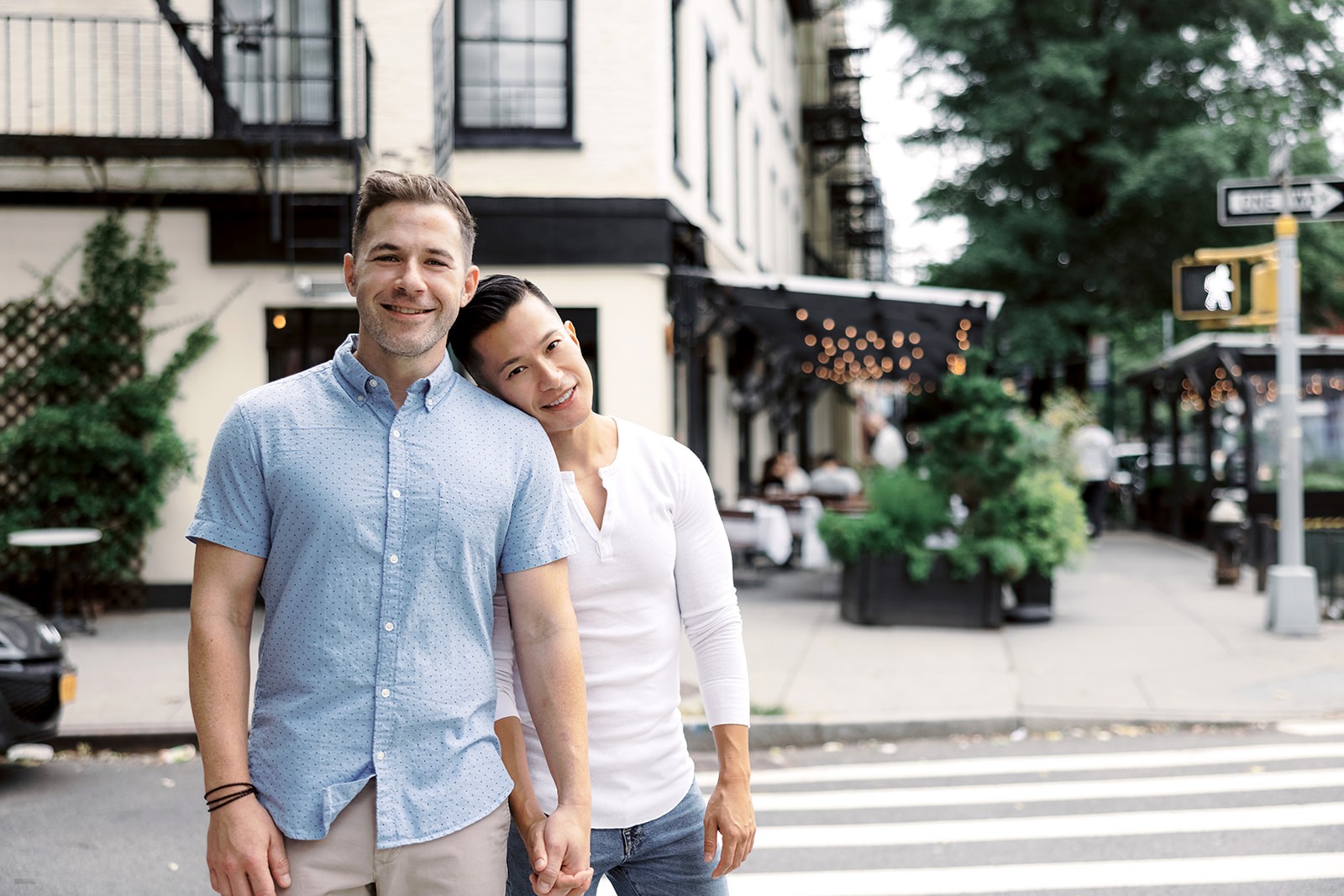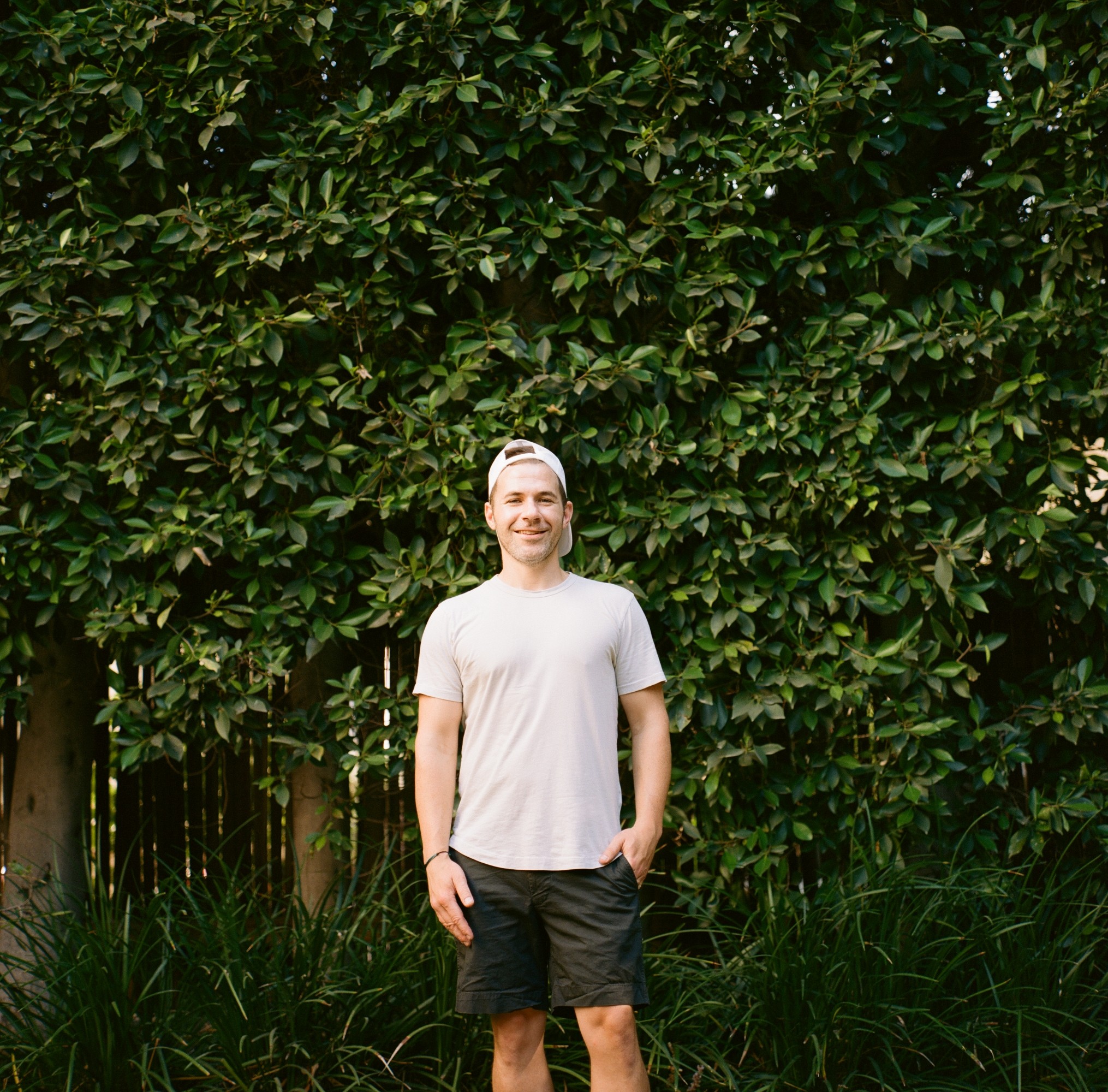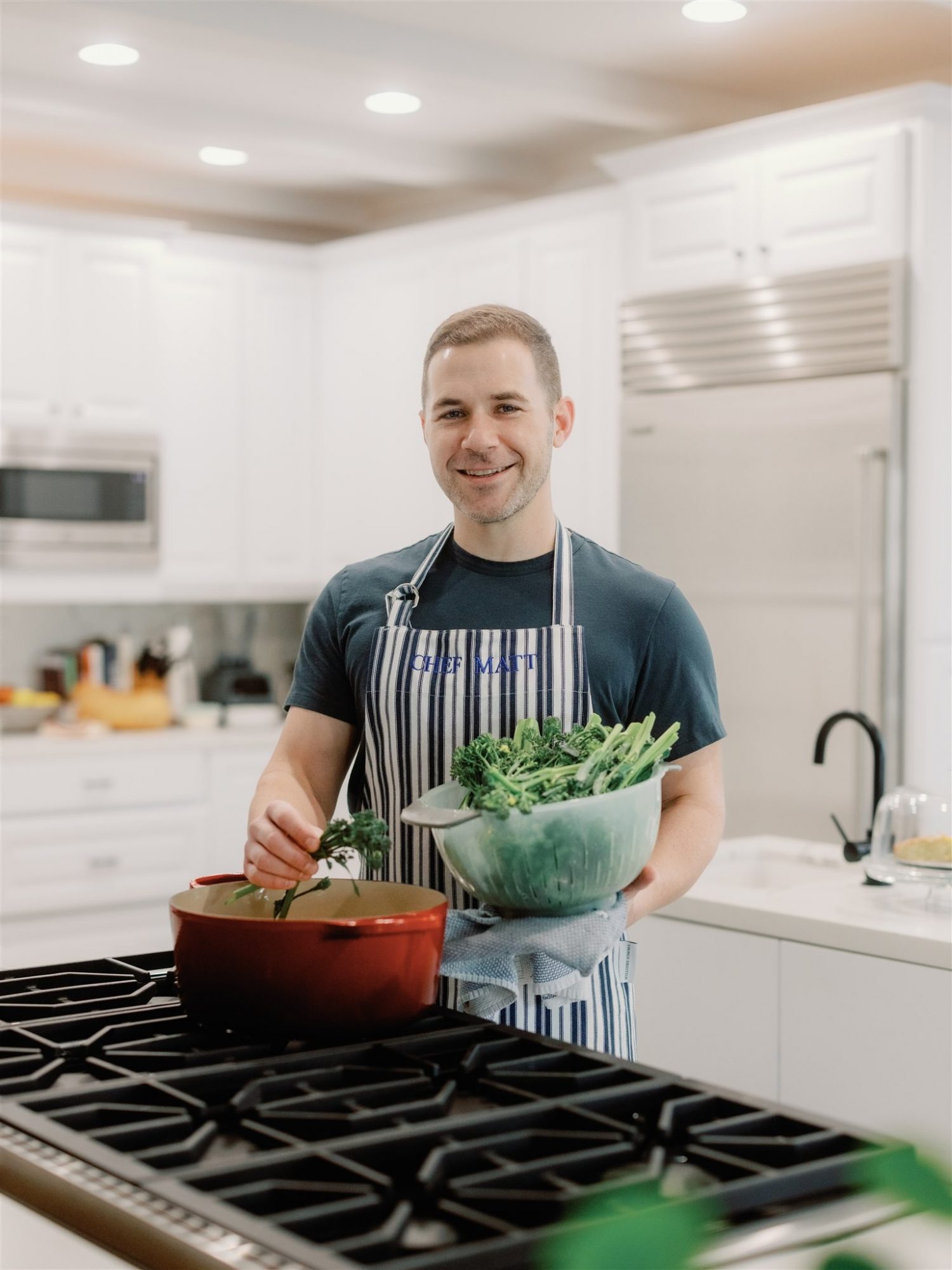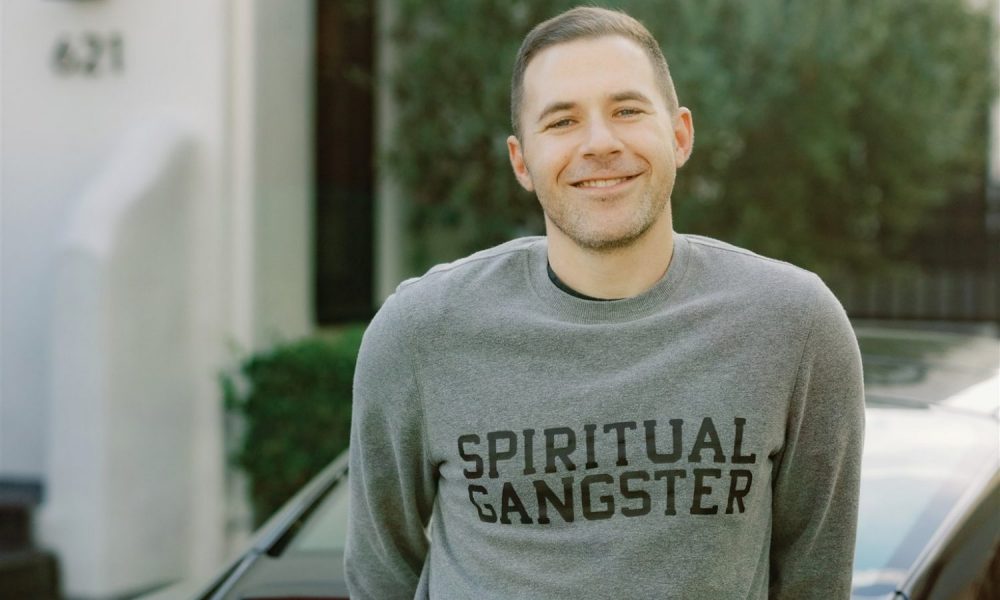

Today, we’d like to introduce you to Matt Gerlach.
Thank you so much for sharing your story and insight with our readers. To kick things off, can you tell us a bit about how you got started?
I was 33 and living in New York when my life took a nosedive and revealed that my mental health had been propped up on stilts.
I swear, up until then, I don’t think I ever once sat down and allowed myself to feel anything—FEELING had always been too painful, so I learned to avoid pain by keeping myself busy. At the time, my partner and I had been together for five years when I was laid off from my job and started a consulting firm for baby product companies—I had no affinity towards baby products but randomly fell into it without ever asking myself what I wanted from my life.
The stress was like nothing I had ever felt before, and exposed my inability to set boundaries, advocate for my needs, and trust that life wouldn’t pull the rug out from underneath me and render me homeless. Amongst all the pressure of starting a business, my partner and I decided to move back to LA—where I was from and also where I gladly left. A few hours after we landed at LAX, I thought I was having a heart attack and spent my first night in LA checked into Cedars Sinai.
Not long after discharge, I started having panic attacks that kept me from being able to drive. I learned my life was sending me wake-up calls, and compliantly, I listened and learned that underneath, I had a traumatic childhood, and its effects had been buried.
As a kid, I was so different from all my peers and was rejected. I had no interest in sports and other things that little boys were supposed to like, and it created a big rift between my family and me that led me to believe something was fundamentally flawed inside me. I acted out because of how badly I was suffering, and I was punished as though I was a disobedient child. I learned to hide what I was afraid others wouldn’t like about me, and when I realized I was gay, I was so afraid of rejection and ridicule that I just kept that in also.
I worked with healers and therapists and went back through my childhood and reparented myself, and since doing so, I’ve developed a strong desire for purpose-driven work. Though I grew my baby product consulting firm to earn me $1m a year, I’m only working with one baby product company now and have moved into coaching high-achievers who’ve had trauma in their lives (most of us have!)
The results are incredible—when we learn to say what we want from our lives and realize what’s holding us back from going after it, we’re able to build ourselves quite enjoyable and fulfilling lives. So many of us are held back by messages we’ve received growing up, and once we learn to believe we can achieve what we want, it’s all about planning and doing the work to make a dream become a reality.
Now, my partner and I have been together for 12 years and just signed with a surrogacy agency and are expecting our first child in the next 12 or so months. I never would have thought this would be possible, but healing allowed me to admit I wanted to be a father. The dream was always there, I suppose, but I told myself I was too broken to raise a child—a belief I’ve worked through and am happy I did!
I’m really aiming to grow my mentoring business, including group coaching and building a community to help others learn the power of healing from our childhoods. Our parents likely did their best, but that doesn’t mean their best didn’t traumatize us. When we learn to hold compassion for ourselves and others, the power of healing is limitless.
Can you talk to us about the challenges and lessons you’ve learned? Looking back, would you say it’s been easy or smooth in retrospect?
Yes and no. Yes, because my journey is all about personal growth, and when we’re growing, our lives are improving. When we set a boundary, for example, while it’s hard, almost immediately, we’re getting ourselves out of a situation that’s causing us harm. Our lives improve in real time as we’re growing, and it’s really incredible to see your life change because of your own actions.
No, because when you’re breaking a cycle of generational trauma, you’re upsetting people who don’t want to see the truth for what it is. Most people don’t like change, and even more people can’t handle negative feedback. The journey as it relates to my family has been incredibly isolating, and I think it’s mainly because shame is so painful. For someone to apologize, they have to admit they did something wrong, and without getting help, I think it’s virtually impossible to learn to forgive yourself.
I’ve learned to forgive people who never asked for forgiveness, but that doesn’t mean that everything’s fine and dandy. I have boundaries and avoid a lot of conversations, which means avoiding a lot of depth in relationships, but I can only control what I can control, and there’s great power in learning that. I believe learning what I can control has been a massive contributor to the improvement of my anxiety and depression. When we learn to accept things the way they are, even when they’re unfair and devastating, there’s a lot of freedom.
Overall, the road has been linear, but there’ve been peaks and valleys for sure!
As you know, we’re big fans of you and your work. For our readers who might not be as familiar with what you do, what can you tell them about what you do?
It’s almost shocking to me that I now identify as an artist. Growing up, art never felt safe for me because expressing myself always felt terrifying. Now, at 40, I’m writing a book about my healing story, and it’s been the most rewarding experience of my entire life.
In 2019, I had just become clear that my childhood was traumatic, and my parents and I had an argument that more or less estranged us for the following three years. Sad as it was, I don’t think I’d be where I am right now if it wasn’t for that—I had space, and with COVID, I had time to start writing a book.
I hired a writing coach who helped me get my story onto the page, but more than that, I made sense of it. Before writing my book, I could have told you about my childhood in no more than two paragraphs—I just didn’t remember anything else—but more than a thousand pages later, I have clarity that I never thought I’d gain.
I was so afraid of feeling anything for so long that with the time and space I had, along with the support of therapists and coaches, I learned to trust my memories and honor my feelings. Letting go of how I thought I was supposed to feel and allowing myself to feel how I wanted to has been the most freeing experience of my life.
As I’ve shared my experience, I’ve learned that vulnerability is my superpower, and it’s something that allows me to connect and help others. I encourage everyone who’s struggling with anxiety or depression to try to allow themselves to introspect and understand what’s beneath it all. Also, I don’t know how possible it is to work through the past without at least some help, and I don’t want to overshadow that piece—and it’s why I’m so interested in helping others—we all need help, and there’s nothing wrong with that.
I love writing because it allows us to work through our thoughts and make sense of them. It’s nearly free and accessible to anyone. I also like to remind people that it’s fine to write and tear it up or burn it afterward if you’re afraid of someone seeing it—most of the benefit comes from getting it out of you, not filing it away.
Can you share something surprising about yourself?
How much I’ve struggled with confidence and self-love. People are dumbfounded to hear how much I’ve struggled and how bad it’s been for me. Until, when at 33, I started crumbling, I didn’t know I was supposed to feel good or that mental or emotional health mattered. It was a blessing, in a way, because I never knew what it felt like to feel good, so I just kept pushing forward in the face of adversity and pain.
I wasn’t driven by confidence; I was driven by scarcity and fear—there was no help, and if I didn’t keep myself safe and money in my bank account, I’d be living under a bridge. No one knew how bad I was feeling because I didn’t know how bad I was feeling.
Contact Info:
- Website: www.mattgerlach.com
- Instagram: www.instagram.com/iammattgerlach
- Facebook: www.facebook.com/mattggerlach
- Linkedin: www.linkedin.com/in/matt-gerlach/
